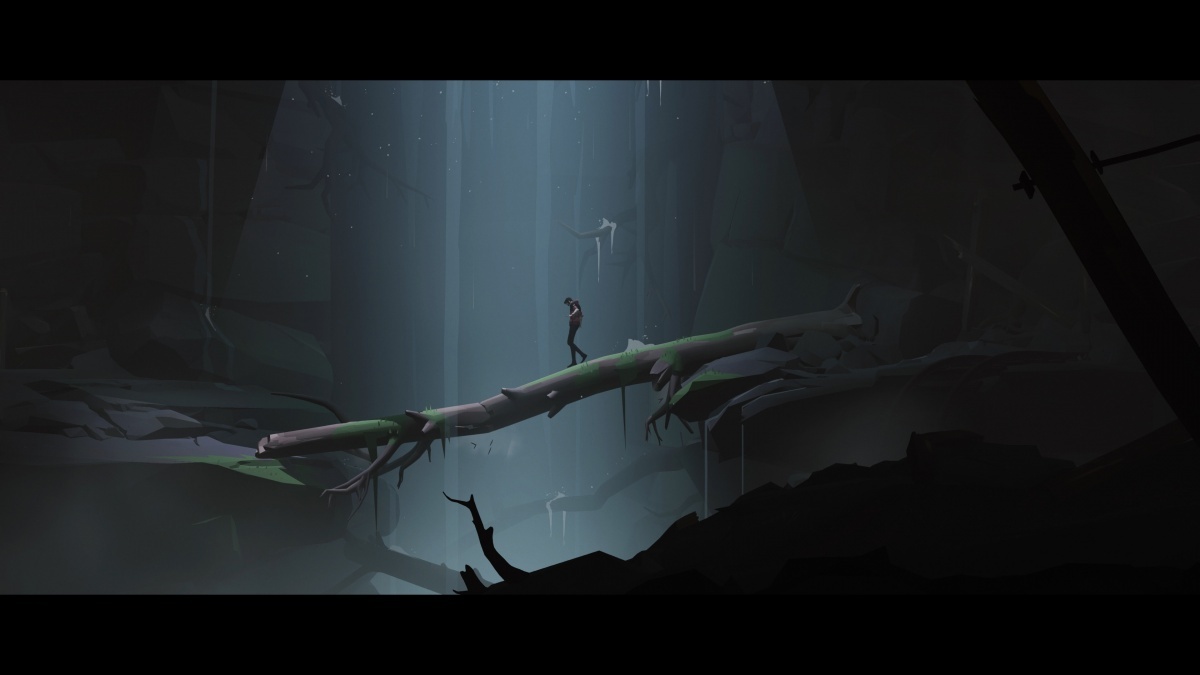Somerville (Xbox Series X/S) Review
By Coller Entragian  07.06.2023
07.06.2023

Limbo and Inside are bonafide classic cinematic 2D platformers. Both are the gold standard for visual storytelling and well-paced puzzle-platforming, with a strong sense of atmosphere. Former staff who worked on these games would splinter off to form Jumpship and aim to expand upon the foundation established in those two titles. Can Somerville take the Playdead formula and interpret it into 3D? What is it about and where does it stack up against its contemporaries like Little Nightmares II?
Somerville had a lot of great ideas on paper. The former Inside developers aimed to refine the art direction and narrative design while also moving into semi-3D gameplay. The point of view may be fixed, but now the protagonist would be able to move around in all directions. All the elements were seemingly in place, but the execution is all wrong.
Somerville is an intimate story about a man trying to reunite with his family during an alien invasion. The narrative is conveyed entirely through visuals, and the same level of panache seen in the game designer's prior projects is as strong as ever.
Unlike Inside or Limbo, Somerville has a much more accessible narrative since it doesn't involve such a surreal premise. Most people will be able to follow along the husband's journey and make sense of everything. When the player is presented with some choices, there is never any question of what is happening and information is strongly communicated.

Where Somerville first shows signs of faltering is in its visuals. In a vacuum, Somerville looks fine, but when compared to Inside, it is noticeably lacking the same level of craftsmanship. Some models look cheap and crude. Relying on 2D assets to give the illusion of depth in the backgrounds is nothing new, but Somerville handles it sloppily. The seams in the illusion are all too obvious and the impression given is that this was rushed or incomplete. If this was a first-time indie developer who was working alone, this would be passable, but this is from the people who made some of the best looking 2D platformers of all time. Somerville should look way better.
Worse yet, character animation fails to impress. To this day, Inside is still a crowning achievement in the most convincing animation systems ever created for a 2D platformer. Somerville fails in this aspect. The husband moves very slow and has a terrible delay in a lot of his actions. The contextual actions are also unreliable and are not as responsive as they should be. There are not many actions the husband can do in this game and yet the few available have rough kinesthetics. Compounded with an intensely erratic frame rate that fluctuates between 20 and 60 fps, Somerville feels terrible to play.
The sluggish controls and slow movement makes these simple puzzles feel like they take hours to complete. They aren't as creative as past examples of similar kinds of games in this genre, but that is forgivable since Somerville aims to deliver a focused narrative. What is unforgivable is the utter lack of platforming. The husband doesn't really have a jump; instead, there is a greater emphasis on physics-based puzzles and scripted set-pieces. There is an overwhelmingly lack of energy throughout the adventure and it wears down any interest in continuing.

Cubed3 Rating
Subpar
Somerville's greatest flaw is just how boring it is. It is more of a walking-sim than a platforming-adventure game. Reactive objects are also colour-coded yellow, so there is never any question about what to do. This robs any sense of discovery in a title that is already so tightly focused on pushing players forward. The terribly slow walking speed will pad out Somerville's length to around four to five hours, when there is maybe only two hours of actual substance. Traditionally, these kinds of games are short but make up for it with excellent pacing. Somerville feels like a flatline for most of the entire run.
Reviewed on Xbox Series S.

![]() 4/10
4/10
![]() 0
(0 Votes)
0
(0 Votes)
 Out now
Out now  Out now
Out now  Out now
Out now  Out now
Out now Comments
Comments are currently disabled

 Sign In
Sign In Game Details
Game Details Subscribe to this topic
Subscribe to this topic Features
Features







 Top
Top

